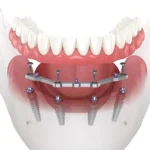
Expert Orthopedics and Traumatology Care for Pain Relief
Treating disorders affecting bones, joints, and muscles depends much on orthopedic and traumatological treatment. From acute injuries to chronic pain, knowledgeable doctors at the centre for orthopedic surgery can provide a spectrum of treatments that offer comfort and enhance quality of life. Understanding the type of your pain and offering focused treatments can enable experts to assist in restoring movement and function, therefore facilitating the return to normal activities.
Understanding the Role of Orthopedic and Traumatology Care
While traumatology deals especially with injuries stemming from accidents or trauma, orthopedics emphasizes the diagnosis, treatment, and prevention of musculoskeletal problems. These overlapping medical disciplines give patients with disorders including sprains, strains, fractures, and joint discomfort thorough treatment. Not only can expert treatment in these areas address current problems, but it also helps to avoid long-term damage that might cause chronic pain or impairment.
Personalized Treatment Plans
Developing customized treatment regimens that meet the particular needs of every patient is an essential component of competent care. Everybody has a different situation; hence, a customized strategy guarantees the best results. Based on the degree of the problem, the treatment strategy can call for physical therapy, drugs, or surgical operations. Through an emphasis on the patient’s lifestyle, goals, and preferences, experts can select the most suitable treatments that maximize pain relief and advance healing.
Advanced Diagnostic Techniques
Effective treatment requires accurate diagnosis. Using cutting-edge diagnostic instruments like imaging scans and physical exams, orthopedics and traumatology experts help to identify the precise source of pain or damage. These methods enable doctors to precisely spot fractures, ligament damage, or joint problems, therefore guaranteeing the correct line of treatment. Early diagnosis of an illness speeds up the implementation of a treatment, therefore reducing pain for the patient and accelerating recovery timeframes.
Non-Surgical Treatment Options
Not every musculoskeletal problem calls for surgery. Many disorders can be well controlled with non-invasive procedures. Usually used to reduce pain and increase mobility are physical therapy, focused exercises, and pain management techniques. Sometimes short relief from inflammation might come from injections or medications. Without the risks and recovery time connected with surgery, many patients find great improvements in their quality of life from these non-surgical choices.
Surgical Interventions When Necessary
Although non-invasive therapies are usually the first line of protection, for more serious or persistent diseases, surgery could become required. Compared to conventional surgery, advanced surgical techniques like minimally invasive procedures can provide less pain and faster recovery times. Skilled in doing these operations with accuracy, experts in orthopedic and traumatological treatment guarantee that patients have the best possible results. Whether it’s a joint replacement or a bone fracture repair, surgical procedures can help restore function and remove discomfort that non-surgical treatments might not be able to target.
From serious injuries to chronic pain, expert orthopedic and traumatological treatment at the centre for orthopedic surgery provides efficient answers for a broad spectrum of musculoskeletal problems. By means of sophisticated diagnostic equipment, tailored treatment plans, and a range of both non-surgical and surgical alternatives, experts can greatly minimize discomfort and improve mobility. Emphasizing long-term recovery and rehabilitation, people should anticipate improving their quality of life and find it easier to resume their regular activities.



















